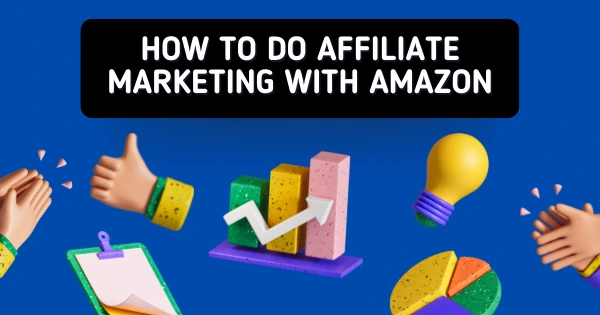Affiliate marketing can be an effective way to earn money online without having a massive following. While social media is often considered a crucial tool for influencers and affiliate marketers, there are alternative strategies that can lead to success in the affiliate marketing business. In this article, we’ll explore various techniques and tips to help you thrive in the world of affiliate marketing without relying on a large following.
1. Introduction
In this digital age, affiliate marketing has emerged as one of the most popular methods to earn a passive income. The concept is simple: you promote products or services of others through affiliate links, and when someone makes a purchase through your referral, you earn a commission. Many assume that having a substantial social media following is a prerequisite for successful affiliate marketing. However, that’s not entirely true. With the right approach and strategies, you can excel at affiliate marketing even without a massive follower count.
2. Understanding Affiliate Marketing
Before diving into the details, it’s crucial to grasp the fundamentals of affiliate marketing. Understand how the process works, the roles of merchants, affiliates, and customers, and the different commission structures available. This knowledge will lay a solid foundation for your future endeavors.
3. Choosing the Right Niche
Selecting the right niche is vital for successful affiliate marketing. Focus on an area that genuinely interests you and aligns with your expertise. Conduct keyword research and competitor analysis to identify opportunities within the chosen niche.
4. Creating a Website or Blog
A website or blog is the central platform for your affiliate marketing efforts. It’s where you’ll publish valuable content related to your niche and promote affiliate products or services. Learn how to create an engaging website that captivates your audience and fosters trust.
5. Search Engine Optimization (SEO) for Affiliate Marketing
SEO is a powerful tool that can boost your visibility in search engines. Learn the best SEO practices for affiliate marketing, including keyword research, on-page optimization, and link-building techniques.
6. Generating Income through Affiliate Marketing
Understand the various methods to generate income through affiliate marketing, such as pay-per-click (PPC), pay-per-lead (PPL), and pay-per-sale (PPS) models. Explore different affiliate programs and choose those that align best with your niche.
7. Building an Email List
An email list is a valuable asset for affiliate marketers. Learn how to build and grow an email list organically, and explore effective email marketing strategies to promote affiliate products without being pushy.
8. Creating Engaging Blog Posts
Content is king in affiliate marketing. Learn how to create compelling and valuable blog posts that address the pain points of your audience and subtly incorporate affiliate products or links.
9. Promoting Products or Services
Discover creative ways to promote affiliate products without being overly salesy. Tailor your promotions to add value to your audience’s lives and encourage them to make informed buying decisions.
10. Utilizing Affiliate Links Strategically
Learn how to strategically place affiliate links within your content for maximum visibility and click-through rates. Strike a balance between promotion and providing useful information to your audience.
11. Harnessing the Power of Search Engines
Optimize your content to rank higher in search engine results, which can drive organic traffic to your website. Employ effective keyword strategies to attract potential customers actively searching for products or information.
12. Leveraging YouTube Videos for Affiliate Marketing
YouTube is a powerful platform to engage with your audience visually. Learn how to create informative and entertaining videos that promote affiliate products subtly.
13. Exploring Affiliate Programs
Diversify your affiliate income by exploring various affiliate programs. Join multiple programs that suit your niche and audience, but be cautious not to overwhelm your content with excessive promotions.
14. Affiliate Marketing Without Relying on Social Media
While social media can be beneficial, it’s not the only way to succeed in affiliate marketing. Discover alternative methods and strategies to thrive without a heavy dependence on social media platforms.
15. Conclusion
In conclusion, building a successful affiliate marketing business without followers is challenging but entirely achievable. By focusing on providing value, understanding SEO, and leveraging multiple channels for promotion, you can carve a niche for yourself in the affiliate marketing world. Remember that it takes time, patience, and continuous learning to excel in this field.
Read More Articles:
FAQs
1. Can I start affiliate marketing without a website?
Starting affiliate marketing without a website is possible but not recommended. A website provides a centralized platform to publish content and promote affiliate products effectively.
2. Is email marketing essential for affiliate success?
While not mandatory, email marketing is highly beneficial for affiliate marketers. Building an email list allows you to engage with your audience directly and promote products more efficiently.
3. How long does it take to see results in affiliate marketing?
The timeline for results varies depending on several factors, including niche competition, content quality, and promotional strategies. It’s essential to stay consistent and patient, as success may not happen overnight.
4. Can I do affiliate marketing without investing any money?
While it’s possible to start with minimal investment, such as website hosting and domain fees, investing in useful tools and resources can significantly enhance your affiliate marketing efforts.
5. Are there any legal considerations in affiliate marketing?
Yes, there are legal aspects to consider in affiliate marketing, such as disclosing affiliate relationships and adhering to FTC guidelines. It’s crucial to maintain transparency with your audience to build trust.



